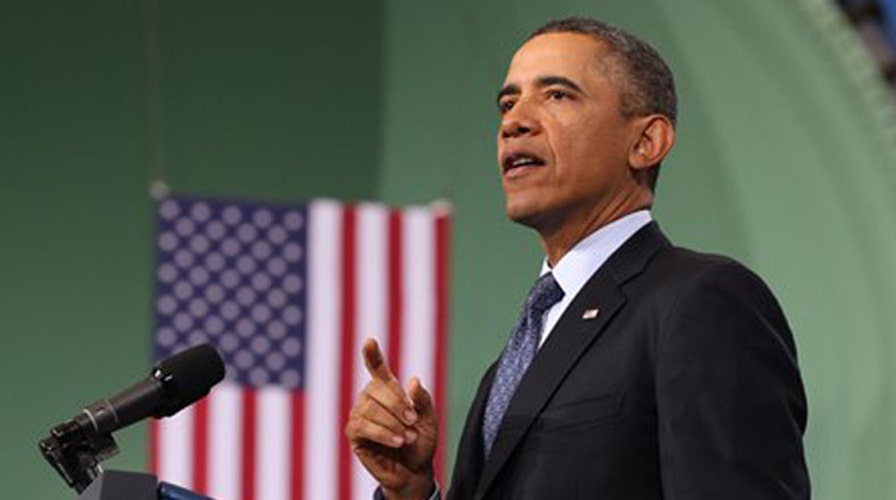How ironic is the recent news that President Obama engages in crony capitalism and that he doesn’t always play by the rules?
Our righteous president has often leveled such charges against America’s corporate leaders, suggesting they skirt the law of the land, and that the playing field is not level for ordinary people. How disappointing then to find a pattern of favoritism and hypocrisy emerging from 1600 Pennsylvania Avenue.
The most recent revelation concerns health insurance exec Sara Horowitz, who recently won a tax-free $340 million federal loan to set up insurance co-ops in three states as part of the ObamaCare program. This, despite the fact that her company, Freelancers Insurance, has earned distinction as the “worst” insurer two years in a row in her home state of New York and that the firm has been pummeled with unusually high consumer complaints.
[pullquote]
Why would such a dismal performance find favor with the feds? Maybe because Ms. Horowitz and President Obama go way back – back to before the latter was a player on the national scene. Back to when she and Obama together launched liberal think tank Demos along with George Soros, jointly joined that outfit’s board, and before Obama’s caretakers managed to get the record of that alliance scrubbed from Demos’ website. Ms. Horowitz and Mr. Obama are long-time cronies.
This is perhaps small beans. But it is part of a “do what I say not what I do” tendency on the part of Mr. Obama that threatens his credibility.
Consider the emergence of Organizing for Action (OFA), a super PAC in all but name that will lobby for the president’s agenda using his former campaign staff and monies donated by rich supporters. Some $50 million is expected to be raised by the outfit, which will make it, according to the New York Times, one of the best funded lobbying groups in the country.
Nearly everything about this group, from its staffing by Obama apparatchiks to its tax-exempt status to its solicitation of funds from folks looking to become ambassadors, flies in the face of the president’s former condemnation of such secretive influence-peddlers.
Because the group is being set up as a tax-exempt “social welfare group” it is, as the Times points out, not bound by rules that govern federal campaign limits or that preclude Obama aides from raising money. The paper concludes that the new organization will “self-regulate.” Just like hedge funds.
What does this mean? It means that the White House can solicit large gifts from private individuals and from corporations to help advance Mr. Obama’s priorities, without having to play by campaign finance rules.
Organizing for Action has already spent $500,000 funding rallies in support of gun control efforts and will doubtless bus supporters to applaud future appearances by Mr. Obama when he speaks out in favor of immigration control or climate change. This kind of thing happens in North Korea and Venezuela, where despots hire cheering audiences; I’m not aware that it has happened in the U.S. before.
OFA claims on its website that it will not engage in partisan politics, yet one of its first moves was to launch a costly national ad campaign targeting GOP lawmakers in support of gun control legislation. It is sailing, shall we say, close to the wind. So is President Obama.
The president has been especially critical of corporate fund-raising. Who can forget his unprecedented attack on the Supreme Court for its decision allowing corporate campaign donations in the Citizens United case? Obama 2.0 has no such qualms. Not only were corporations "invited” to fund the second inaugural party, they are also being solicited for OFA.
President Obama has switched ponies not only on financial matters. Contrary to his early criticism of Bush 43’s alleged power grabs in the name of anti-terrorism, Obama’s administration has invoked the so-called state secrets privilege to counter lawsuits over warrantless wiretapping – defenses political commentator and former cable news anchor Keith Olbermann called “radical doctrines of executive secrecy which Bush used.”
The president’s use of drones to kill American citizens, and refusal to turn over documents explaining the legal justification for such adventures, also echo Bush policies he once denounced.
While the president appears comfortable with his access to high-tech assassinations, he apparently doubts that successors will use those same powers for the best interests of the nation. It has emerged that in the months leading up to the election, the White House toiled over codifying presidential use of targeted drone killings, just in case he was not reelected.
Campaigner Obama accused President George Bush of exerting excessive authority to wage war; Obama’s refusal to get authorization from Congress to intervene in Libya is thought by many to have been unconstitutional.
In 2007 he also described Bush 43’s use of executive orders as “an unacceptable abuse of power at home.” This from the man who, because he is so inept at negotiating with Republicans and even Democrats in Congress, has spawned an increasing number of executive orders on issues ranging from cyber security to gun control to immigration policy. When Obama promised to “reach across the aisle,” no one expected his reach to extend across both aisles.
Presidents react with frustration to the limits of their power. They also change course once in office. But President Obama’s accelerating abandonment of principle is profound, and keenly disappointing.

